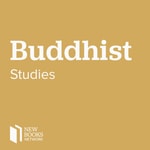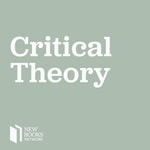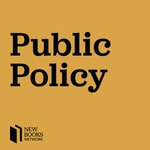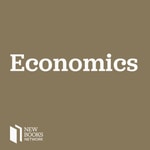New Books in Environmental Studies – Détails, épisodes et analyse
Détails du podcast
Informations techniques et générales issues du flux RSS du podcast.

New Books in Environmental Studies
Marshall Poe
Fréquence : 1 épisode/6j. Total Éps: 1074

Classements récents
Dernières positions dans les classements Apple Podcasts et Spotify.
Apple Podcasts
🇬🇧 Grande Bretagne - naturalSciences
29/07/2025#34🇺🇸 États-Unis - naturalSciences
29/07/2025#68🇫🇷 France - naturalSciences
29/07/2025#58🇬🇧 Grande Bretagne - naturalSciences
28/07/2025#74🇺🇸 États-Unis - naturalSciences
28/07/2025#49🇫🇷 France - naturalSciences
28/07/2025#89🇬🇧 Grande Bretagne - naturalSciences
27/07/2025#59🇺🇸 États-Unis - naturalSciences
27/07/2025#50🇺🇸 États-Unis - naturalSciences
26/07/2025#74🇺🇸 États-Unis - naturalSciences
25/07/2025#72
Spotify
Aucun classement récent disponible
Liens partagés entre épisodes et podcasts
Liens présents dans les descriptions d'épisodes et autres podcasts les utilisant également.
See all- http://www.nias.ku.dk/nordic-asia-podcast
276 partages
- https://www.sensorylogic.com
245 partages
- https://twitter.com/sraab18
19 partages
- https://www.linkedin.com/in/batesmith/
2 partages
Qualité et score du flux RSS
Évaluation technique de la qualité et de la structure du flux RSS.
See allScore global : 48%
Historique des publications
Répartition mensuelle des publications d'épisodes au fil des années.
Jonathan Shapiro Anjaria, "Mumbai on Two Wheels: Cycling, Urban Space, and Sustainable Mobility" (U Washington Press, 2024)
Épisode 240
mardi 27 août 2024 • Durée 53:29
Hope Bohanec, "The Humane Hoax: Essays Exposing the Myth of Happy Meat, Humane Dairy, and Ethical Eggs" (Lantern Publishing, 2023)
Épisode 69
lundi 26 août 2024 • Durée 01:14:09
Michael J. Sheridan, "Roots of Power: The Political Ecology of Boundary Plants" (Routledge, 2023)
Épisode 317
mercredi 31 juillet 2024 • Durée 01:03:11
Marcy Norton, "The Tame and the Wild: People and Animals after 1492" (Harvard UP, 2024)
Épisode 61
jeudi 4 janvier 2024 • Durée 01:00:38
Timothy Brook, "The Price of Collapse: The Little Ice Age and the Fall of Ming China" (Princeton UP, 2023)
Épisode 168
jeudi 4 janvier 2024 • Durée 39:16
Robert R. Janes, "Museums and Societal Collapse: The Museum as Lifeboat" (Routledge, 2023)
Épisode 1
mardi 2 janvier 2024 • Durée 57:54
Lee McIntyre, "The Scientific Attitude: Defending Science from Denial, Fraud, and Pseudoscience" (MIT Press, 2019)
Épisode 108
mardi 2 janvier 2024 • Durée 30:39
Benjamin R. Siegel, “Hungry Nation: Food, Famine, and the Making of Modern India” (Cambridge UP, 2018)
Épisode 85
vendredi 5 octobre 2018 • Durée 42:26
Nature-Study
Épisode 136
vendredi 29 décembre 2023 • Durée 22:34
Vincent Ialenti, "Deep Time Reckoning: How Future Thinking Can Help Earth Now" (MIT Press, 2020)
Épisode 274
mardi 19 décembre 2023 • Durée 01:18:01









